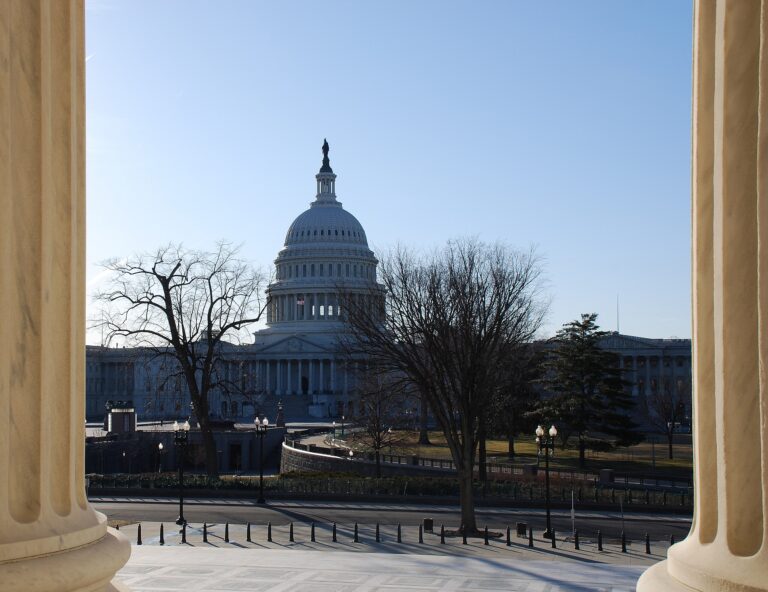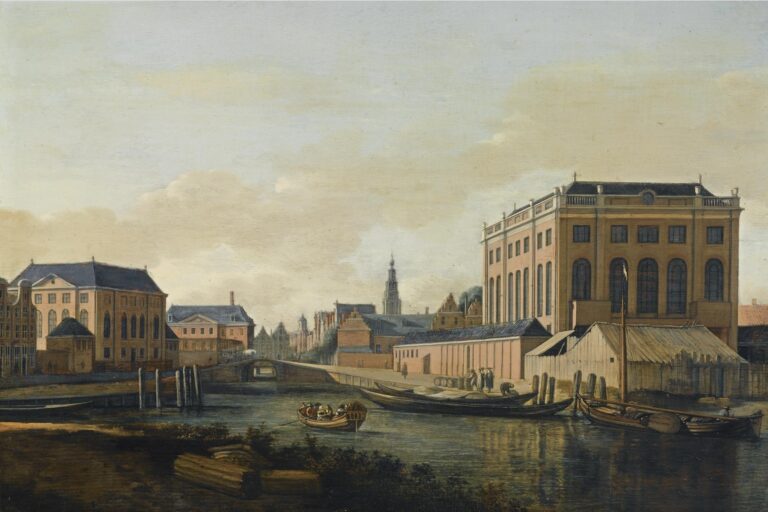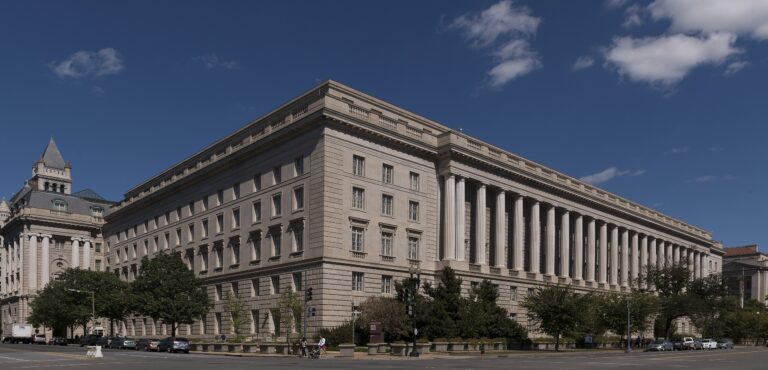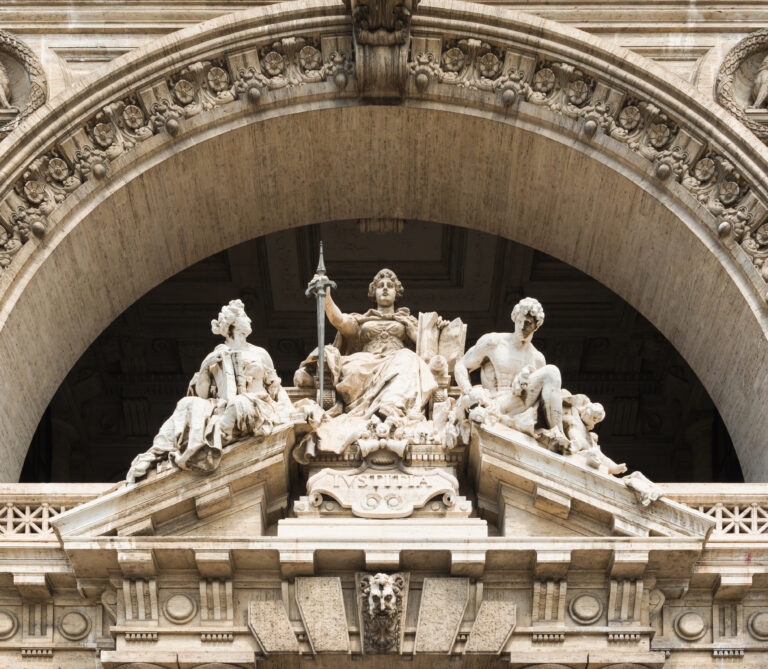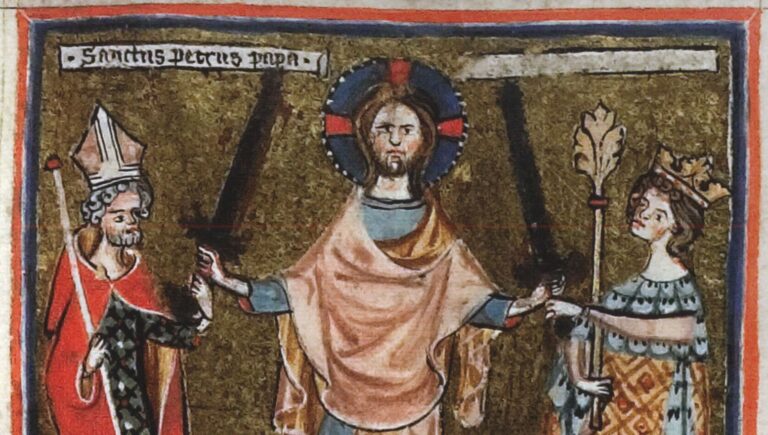
Masked Discrimination Against Vodou and Other African Diaspora Religions
Danielle Boaz
Photo of Ohio, USA by Robert Conklin on Unsplash.
This article is part of our virtual symposium and essay series, “Masking Religious Freedom Violations.” Read more here.
How does one protect a faith that most people would not even recognize as a religion? How can religious freedom be guaranteed when the public struggles to separate devotees’ real religious beliefs and practices from long-standing stereotypes? These are two of the rather unique problems facing African diaspora religions. In this essay, I explore masked discrimination against African diaspora religions through the discussion of two recent high-profile incidents involving Haitians and devotees of Haitian Vodou.
Rumors of Pet-Eating in Springfield, Ohio
Fleeing political instability, gang violence, and a series of devastating natural disasters, thousands of Haitians have found their way to the United States in recent years. Following informal immigration channels where people learn about job opportunities from family and friends, between 12,000 and 20,000 Haitians have arrived in Springfield, Ohio. Estimates show that Springfield had a population of just 60,000 in 2015.
The sudden influx of immigrants in this small town has caused great controversy. Some local Republican officials have complained about the Haitians, sometimes using racialized language about them carrying diseases and having a tendency for gang violence and “voodoo” practices. Political figures like J.D. Vance, the Republican nominee for Vice President, have made Springfield a frequent example for their criticism of the current administration’s immigration policies.
The focus on Springfield increased after a series of social media posts in August and early September. One of the first came from a Springfield resident, Erika Lee, who posted on Facebook that her neighbor’s cat was missing and claimed that the neighbor thought it might have been attacked by Haitians in their community. Then, on September 9, 2024, another social media user posted a picture of a Black man carrying a dead goose with a caption that alleged, “Springfield Ohio residents are warning their pets and wildlife like ducks and geese are being eaten by Haitians.” Seemingly referencing Lee’s post, the allegations continued, “One neighbor said she saw her cat being carved up by the Haitians. Another neighbor said a police officer told her this is happening to dogs, ducks, and geese.” Others linked such posts to a video circulating that showed a woman being arrested for killing and eating a cat.
This already viral rumor gained further attention when, also on September 9, Vance posted on X, “Reports now show that people have had their pets abducted and eaten by people who shouldn’t be in this country.” The following night, Republication candidate Donald Trump referenced the claim during the widely-viewed presidential debate. Referring to immigrants in Springfield, Trump said, “They’re eating the dogs. They’re eating the cats. They’re eating the pets of the people that live there.”
In the days after the debate, this story was proven to be unfounded. Lee, one of the original posters, admitted that she had no actual knowledge about Haitians attacking pets. The neighbor referenced in Lee’s post further undermined the rumors, telling reporters that Lee had misinterpreted the story and the cat belonged to an acquaintance of a friend. The photo supposedly showing a Haitian man carrying a goose turned out to be unconnected to Haitians or Springfield. Instead, it was a Reddit post that someone shared on July 28 (before this controversy began), joking about strange things one sees in Columbus, Ohio. The woman in the viral video was proven to be someone who was captured on police body cam footage when she was arrested for killing and eating a cat. However, she was a non-Haitian woman from Canton, Ohio.
Not only were these social media posts quickly debunked, but local officials also reported that they had no credible evidence that Haitians were eating pets. Nevertheless, Haitians in Springfield faced serious threats of physical harm. Local government offices and hospitals had to be evacuated, and schools and universities were forced to close or turn to virtual meetings as the city was inundated with bombing and shooting threats in the days following the presidential debate.
While neither Trump nor Vance explicitly linked these pet-eating claims to Haitian Vodou, other sources were quick to blame this often-maligned religion. For example, without seeing the need to explain the link between Vodou and eating pets, self-help author and former Democratic presidential candidate Marianne Williamson posted on X about the controversy, “Haitian voodoo is in fact real, and to dismiss the story out-of-hand rather than listen to the citizens of Springfield, Ohio confirms in the minds of many voters the stereotype of Democrats as smug elite jerks who think they’re too smart to listen to anyone outside their own silo.” Additionally, numerous far right news sites like Infowars published stories featuring people who claimed to have first-hand knowledge of Haitians killing cats and using them in their “voodoo” and “witchcraft rituals.”
In more mainstream forums, scholars of Haiti and African diaspora religions have emphasized that even where Vodou or “voodoo” are not overtly mentioned, stereotypes of Vodou played a central role in this controversy. They have argued that this incident is part of a phenomenon known as “religious racism,” a term that scholars are increasingly using to understand the pervasive discrimination against African diaspora religions in the Americas and its deep-rooted links to anti-Black racism. In the case of Vodou, the term “religious racism” is applied because Vodou has long been stereotyped as one of the key reasons that Haiti, the first free Black republic in the Western Hemisphere, has suffered so much economic and political turmoil. Particularly in the late 19th and early 20th centuries, wild tales of “voodoo,” cannibalism, and human sacrifice were published in travelogues, news articles, and other sources as proof that Black people were incapable of self-rule. Such arguments played an important role in the U.S. occupation of Haiti from 1915 to 1934.
This is far from the first time that religious racism has led to rumors about Vodou being deployed in controversies related to Haitian immigration. Perhaps most notably, Vodou was a common topic in the late 1970s and 1980s, as thousands of Haitians fled the brutal dictatorship of Jean Claude “Baby Doc” Duvalier. As I have discussed in detail elsewhere, stories about “voodoo sacrifices” at sea were common in the U.S. media in the early 1980s. These accounts were often published side-by-side with stories about the plight of Haitian refugees in U.S. detention centers and debates over whether Haitians should be permitted to stay in the country. During this same period, Haitians were one of the main groups blamed for the spread of AIDS, which was, at the time, a very deadly and mysterious disease. Some medical professionals opined that AIDS could have even originated among Haitians because of blood transmission during “voodoo” rituals.
Fueled by horror films and tv dramas, many people regard Vodou as sinister and superstitious, composed of sorcery, “voodoo dolls,” and grisly murders. An April 2024 survey of 1280 people, carried out by the Racial Justice and White Supremacy pod of fellows at the Public Religion Research Institute (PRRI), demonstrates these negative views. In this survey, a mere 17% of respondents indicated that they considered Vodou/Voodoo to be a religion. More than a quarter of respondents (28%) believed that followers of Vodou/Voodoo were more likely to be involved in crime/criminal activity than the average person. Around two-thirds (66%) of respondents believed that followers of Vodou/Voodoo are more likely to practice black magic or witchcraft than the average person. One must assume that such stereotypes about Vodou play a key role in shaping public opinion when allegations like the pet-eating rumors surface about Haitians.
Vodou After the 2010 Earthquake
Prior to the pet-eating debacle, Vodou played a role in responses to one of the worst disasters in Haiti’s history. After a powerful earthquake hit Haiti in January 2010 killing more than 200,000, some people blamed “voodoo” for the devastating natural disaster. Perhaps the most well-known comments came less than two days after the quake from televangelist Pat Robertson who, referring to the legend that participants in the Haitian revolution held a Vodou ceremony to seek spiritual assistance for their uprising, averred that Haiti had brought the earthquake upon itself by making a pact with the “devil” to secure its freedom from France. Also mere days after the earthquake, New York Times columnist David Brooks opined that part of the reason that Haiti was so terribly impacted by the earthquake was due to poverty. That poverty, Brooks claimed, could be partially attributed to “a complex web of progress-resistant cultural influences,” including “the voodoo religion.” Perhaps the harshest critiques came almost a month after the earthquake, when Lawrence Harrison wrote an op-ed for the Wall Street Journal titled “Haiti and the Voodoo Curse: The Cultural Roots of the Country’s Endless Misery.” Harrison opined that Haiti remained “the least developed country in the Western Hemisphere” because its “culture is powerfully influenced by its religion, voodoo.” Harrison described “voodoo” as “without ethical content” and claimed that it belonged to a “species of the sorcery religions” that a “development expert” had identified “as one of the principal obstacles to progress in Africa.”
In addition to being blamed for causing the earthquake, Vodou devotees suffered physical violence. Immediately after the earthquake, as Vodou devotees gathered to hold ceremonies honoring the people who had died and to pray for spiritual assistance for the living, reports emerged that they were physically assaulted and that intolerant persons urinated on their shrines. Such violence escalated dramatically later that year, when a widespread cholera outbreak further devastated Haiti. Blamed for this calamity as well, dozens of Vodou devotees were violently murdered in the streets.
Vodou devotees also experienced economic violence following the 2010 earthquake. Scholars have documented that approximately 64% percent of the U.S. aid for Haiti went to NGOs, many of which were Christian organizations. Vodou devotees reported (and academic research reinforces) that these organizations were refusing to distribute resources like food and water to people who did not attend their churches, especially to Vodou practitioners.
The previously mentioned April 2024 survey suggests that many people in the U.S. (where much of the aid originated) support such discriminatory aid practices. Respondents were asked: “Following an emergency or disaster, a non-profit organization associated with ______ should be able to distribute aid to members of their own religion before followers of other religions.” Respondents were given an answer bank of eight religions—Christianity, Islam, Judaism, Hinduism, Santeria, Vodou/Voodoo, and Satanism. They were instructed to select all that apply. Respondents also had the option of selecting “None of the Above.”
Nearly half (48%) of respondents were comfortable with Christians prioritizing aid to other Christians. Alone, this support for exactly the kind of discrimination practiced in the aftermath of the earthquake in Haiti is disturbing. It is even more concerning when one observes the bias about which organizations should be able to engage in such preferential practices.
Approximately one fourth of respondents believed that followers of Islam (27%), Judaism (28%), and Hinduism (25%) should be able to prioritize members of their own religion when distributing disaster aid. Even fewer supported followers of Santeria (14%) or Satanism (13%) distributing aid to their religious communities before assisting others. The fewest percentage of respondents (12%) supported Vodou devotees distributing aid to members of their own religion before followers of other religions.
Misinformation and Masked Religious Freedom Violations
I refer to the above as examples of “masked violations” of religious freedom because they are born of centuries of misinformation about Vodou that have generated unique and deeply ingrained stereotypes that fuel discrimination. More than a century of rumors about Haitians practicing cannibalism and human sacrifice, spreading AIDs through their bloody rituals, and making pacts with the devil have acted as a primer to encourage stereotypes of Haitians as barbaric people. It is no wonder that the American public has been so quick to share rumors that these supposedly “voodoo”-practicing immigrants are engaging in other anti-social practices like eating pets.
Although the references to “voodoo” are less frequent in this pet-eating controversy and are often hidden in far-right websites where people are unafraid to show their bigotry, they were front-page news a mere fourteen years ago. The callous commentary blaming Haitians for the devastating earthquake was featured in mainstream presses like the New York Times and the Wall Street Journal. Many people had no hesitation in saying that Vodou was anti-progress, without morals, and the reason that Haitians remained poor.
Although much of this essay has focused on rumors and stereotypes, we must remember the lesson that most of us were taught as young children: words hurt. Verbal discrimination and defamation can lead to depression, shame, and even pressure to leave one’s religion. Additionally, rumors can fuel more damaging forms of discrimination, such as the bomb threats in Springfield, Ohio, in mid-September. They can also incite physical and economic violence, as seen in the experiences of Vodou devotees following the earthquake and during the cholera outbreak in 2010.
This kind of masked discrimination is also very dangerous because it is so difficult to combat. How does one erase centuries of stereotypes about Vodou that were circulated to prove that Black people were incapable of ruling themselves? How does one unsee all the TV shows, movies, news articles, and social media posts that claim to have proof devotees engage in barbaric practices? Until we find a way to educate the public about Vodou and other African diaspora religions, religious racism will continue to thrive and will threaten the rights and freedoms of these communities. ♦

Dr. Danielle N. Boaz is Professor of Africana Studies at the University of North Carolina at Charlotte, Co-Editor of the Journal of Africana Religions, President of the International Commission to Combat Religious Racism, and a member of the Working Group on Race, Justice, and Africana Religions. From 2022-2024, she was a member of the Racial Justice and White Supremacy pod of fellows at the Public Religion Research Institute (PRRI) that is cited in this report.
Recommended Citation
Boaz, Danielle. “Masked Discrimination Against Vodou and Other African Diaspora Religions.” Canopy Forum, December 20, 2024. https://canopyforum.org/2024/12/20/masked-discrimination-against-vodou-and-other-african-diaspora-religions/.
Recent Posts



